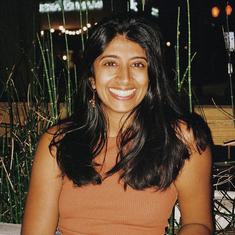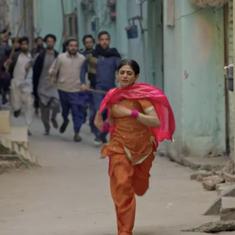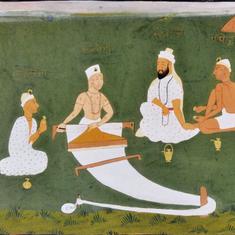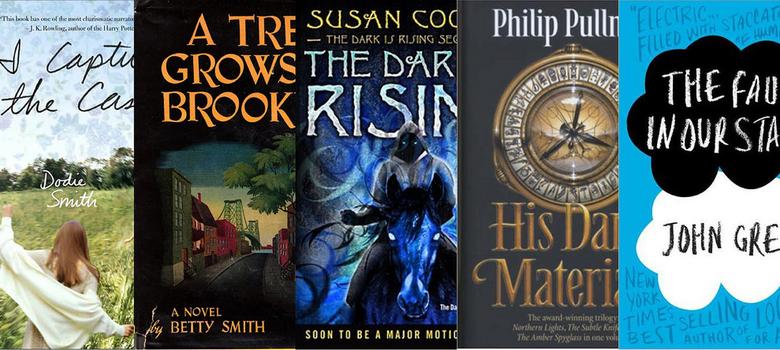But if I like those people, I absolutely adore a fellow YA reader. Someone I don’t have to shrug my shoulders at apologetically, “Yeah, I know it’s meant for teens, but I really love it.” Someone who gets the references. Someone who is fully committed to the genre, reads Harry Potter twice a year and yet is fully conversant with the people who have come before Rowling, and the ones that have forged on from where she left off.
Like philatelists, we examine each other’s recommendations to see if the other one is a true aficionado, and if yes, we have a new best friend to talk to all evening. I’ve used the YA test on lots of people, and the few that stick are my friends to this day.
So, you read, like, kid’s books?
No. No! Young Adult is a loose, catch-all definition by the same publishers who call things chick lit, meaning that it’s meant to be marketed primarily to a teenage audience, but only because the lead character is a teenager.
Now, some teenagers can deal with pretty dark things – death, war, abandonment, rape – these are all very adult themes, but the only difference between YA and regular fiction is that the former is told from the POV of murky adolescence. A trying time for many of us, and a time we still like to revisit from the safety of our thirties, just to be thankful that we don’t have to go back again.
A lot of recent bestselling stuff in this genre if you were to check online is dystopian teen fiction, which is great, but all too often, the books are too alike to be distinguished from each other. There’s always a world where something bad has happened, a society that steps up and defines very rigid rules for its inhabitants to follow, a girl who overreaches and forms a rebellion of some kind. (The Twitter account Dystopian YA Novel spoofs this perfectly and accurately).
But the books I suggest the beginner to YA read, the person who wants to go beyond Hunger Games (good), Divergent (I read it all in one glorious sitting) or Matched (I think I’ve forgotten everything about this book except the basic plot), the person who likes the genre and wants to be more acquainted with it – those are the books I’m suggesting in this list. All the main characters are teenagers or children, but all will make you forget that fact in the first ten pages.
I Capture The Castle, Dodie Smith
Cassandra Mortmain, daughter of a once-famous but now broke author, stepdaughter to Topaz, an artist’s muse, sister to Rose, who just wants to be rich and happy, and Thomas, who is only a little boy, so incidental to the plot, begins the first of her diaries, through which this book is told, by telling us she’s writing this while sitting in the kitchen sink. The Mortmains fortune changes, and so does Cassandra, one of the most charming heroines I’ve had the pleasure to meet.
Notable quotable: “Just to be in love seemed the most blissful luxury I had ever known. The thought came to me that perhaps it is the loving that counts, not the being loved in return – that perhaps true loving can never know anything but happiness. For a moment I felt that I had discovered a great truth.”
A Tree Grows In Brooklyn, Betty Smith
Speaking of charming heroines, Francie Nolan is right up there with the greats. But what a marked difference to Cassandra! For one thing, Francie is Brooklyn, just as much as Cassandra is English countryside – and all the rough and beautiful things about that place come together in this book. The Nolans are poor too – the book is set during the Great Depression – but this coming-of-age novel will lift you up and set you down all at the same time. My old copy fell apart, so I actually had to buy a brand new one, that’s how much I love this book – it’s two-copy-worth.
Notable quotable: “'Dear God,' she prayed, 'let me be something every minute of every hour of my life. Let me be gay; let me be sad. Let me be cold; let me be warm. Let me be hungry...have too much to eat. Let me be ragged or well dressed. Let me be sincere – be deceitful. Let me be truthful; let me be a liar. Let me be honorable and let me sin. Only let me be something every blessed minute. And when I sleep, let me dream all the time so that not one little piece of living is ever lost.'”
The Dark Is Rising sequence, Susan Cooper
Now take a leap of faith with me, when I point out that this is among the finest series I’ve ever read about magic and children and good versus evil. The baddies are the “dark” and they are rising, but there’s still “the light,” people who have been around since King Arthur’s time and before, and among them is Will Stanton, eleven-years-old to the world, but an Old One, a powerful creature destined to bring down the Dark. What I loved about this series is that Cooper never overexplains, she understands her readers to be smart enough to figure out certain plot points. The whole series is somewhat disturbing in a surreal fashion, but that just adds to the charm of it. Loads of battle scenes too, for GRRM-fans.
Notable quotable: “For ever and ever, we say when we are young, or in our prayers. Twice, we say it. Old One, do we not? For ever and ever ... so that a thing may be for ever, a life or a love or a quest, and yet begin again, and be for ever just as before. And any ending that may seem to come is not truly an ending, but an illusion. For Time does not die, Time has neither beginning nor end, and so nothing can end or die that has once had a place in Time.”
His Dark Materials series, Philip Pullman
After much nagging by my partner, I finally read these ebooks which had been on my Kindle shelf for ages. And I didn’t look up even to watch him say, “I told you so.” Like Cooper, Pullman doesn’t believe in leading you right to the answer, like Cooper, the books are dark, but with hope shining out of them. I can’t explain His Dark Materials to anyone who hasn’t read them – I can’t even explain it to myself – but here’s an attempt: your soul is alive in a manifestation that everyone has in this universe. There’s a girl called Lyra and physics and parallel universes? And then suddenly, there’s a new book and a boy called Will (again), and the two of them have to save the world, and then save themselves from each other. It’s delicious and already I envy you if you haven’t read it yet.
Notable quotable: “Being in love was like China: you knew it was there, and no doubt it was very interesting, and some people went there, but I never would... and then someone passed me a bit of some sweet stuff, and suddenly I realized that I had been to China. So to speak. And I'd forgotten it.”
The Fault In Our Stars, John Green
And how can I talk about two star-crossed young teens without mentioning the weepfest that is this book? Hazel and Augustus – both teens with cancer, both knowing that this life is the only shot they’ll get at doing anything, and how they fall in love, and how everything is brilliant, and then everything crashes. I dare you not to cry. I didn’t – but then, I’m a cynic with a heart of stone. (Then I went and hugged my boyfriend when I was done reading.) Green is worth mentioning because he doesn’t go the dystopian way, and still manages to reach out to bazillions of teenagers, proving that sometimes the simplest stories – “I no longer love her, but how I loved her” to quote Neruda – can be the most powerful.
Notable quotable: “Without pain, how could we know joy?' This is an old argument in the field of thinking about suffering and its stupidity and lack of sophistication could be plumbed for centuries but suffice it to say that the existence of broccoli does not, in any way, affect the taste of chocolate.”










